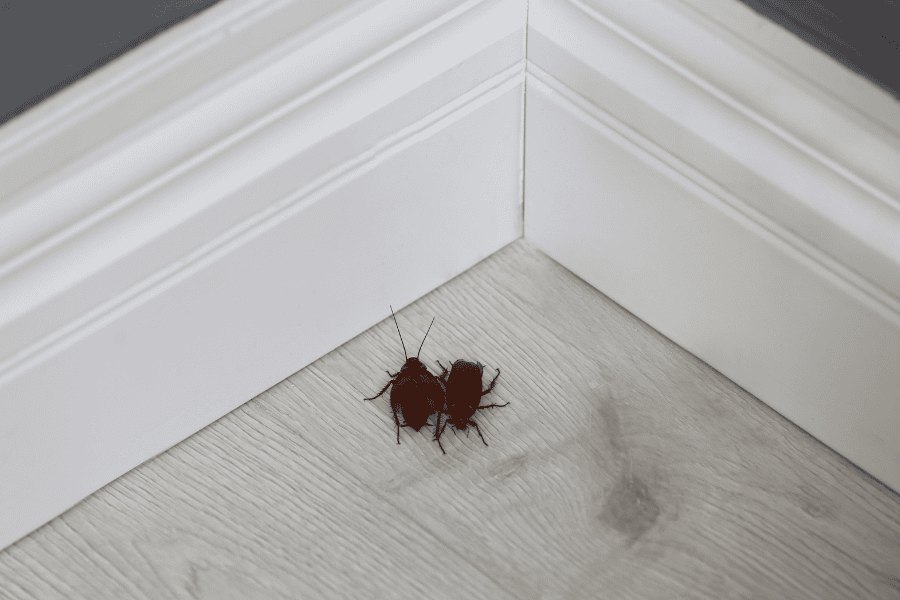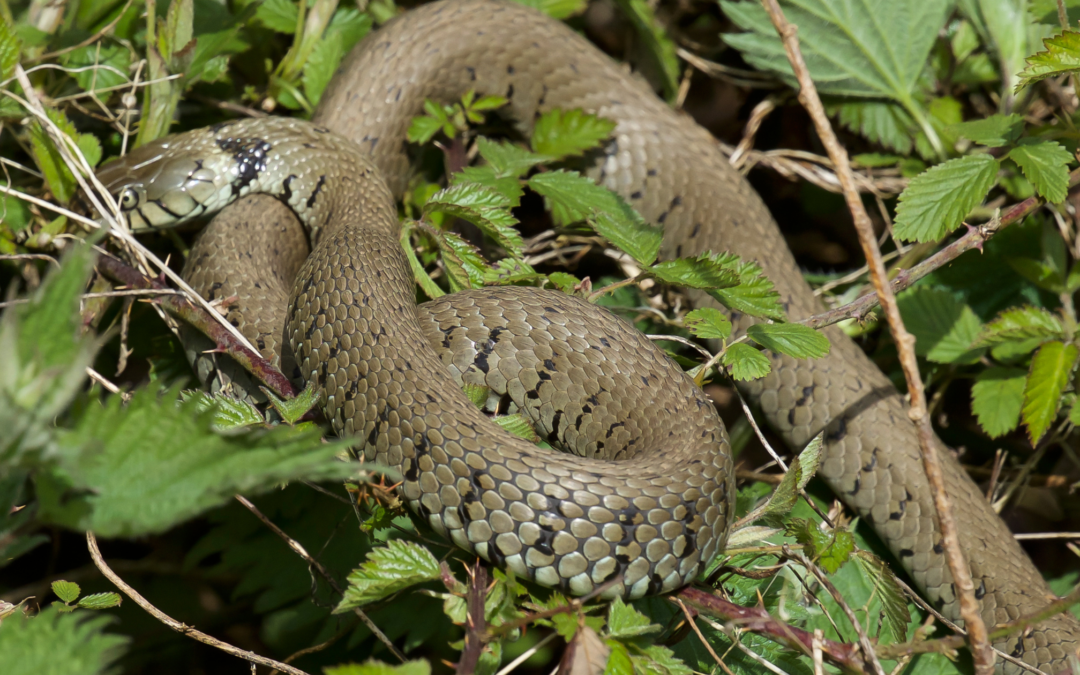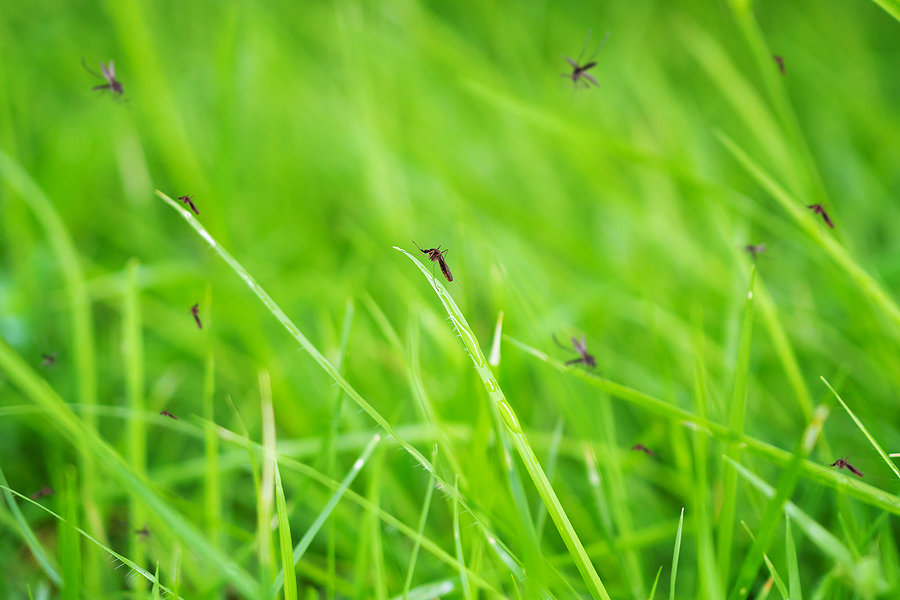READY TO GET STARTED?
REQUEST A FREE ESTIMATE
Fill out the form below or call (888) 466-7849 for a free, no-obligation estimate.

Living in Florida, we have to deal with our fair share of bugs invading our home throughout the year. Whether mosquitoes are invading your yard, ants are taking over your kitchen, or rats are raiding your trash cans, household pests can surely become a major issue. Unfortunately, humans can have a lot to do with pest infestations by our habits, often leading bugs right into our home. We break down the common reasons you could have a bug problem into your Florida home.
Our leftover trash is dinnertime for pests! Pests, such as rats and ants, are all looking for a food source for survival and will often look to our trash cans for available food, creating a huge mess in the process. It’s important to secure your outside and inside trashcan with a tightly sealed lid and ensure your trash bags are sealed without rips or tears.
Several pests prefer a damp environment and need water to survive too. Unfortunately, we also need water, and certain factors throughout our homes can provide pests with a water source, often leading to a bug problem. A leaky faucet can attract pests, like mice, who will return to areas if they have access to water or food. Make sure to check throughout your home for any leaky pipes, faucets, or AC units and repair them as soon as possible. Likewise, your basement and crawlspace can often create excess moisture that can lead to fungus, bad air quality, and pest infestations. Utilize a dehumidifier to dry any wet areas and consider crawlspace enclosure to ensure no moisture is found.
Clutter, such as old newspapers, magazines, and cardboard boxes can provide several pests with the perfect environment. Decluttering and cleaning items out to eliminate hiding places will help prevent pests overall. Consider utilizing plastic storage containers with lids to store any items and elevating them off the ground. Additionally, avoid having clothes piled on the floor, as bugs like spiders are known to hide out in them.
Dirty dishes, food crumbs, and drink spills can attract pests like flies, ants, roaches, and more right into your home! After each meal, wash and put away your dishes to avoid these pests. Likewise, clean up any leftover spills and food crumbs off your floors, dining room table, and counter tops. Don’t forget to clean behind and under your kitchen appliances too as pests like to hide behind stoves and refrigerators to find a food source.
If you’ve noticed an increase of bugs throughout your Florida home, it’s best to call a pest control company near you. These professionals will provide you with a comprehensive pest control and prevention plan.

Integrated Pest Management (IPM) might sound like something that’s reserved for large agricultural operations or sprawling industrial complexes, but IPM can be just as vital for small businesses like yours. But why does it matter for small businesses and how can you implement a strategy that works for you? Let’s find out!
Unlike traditional pest control methods, IPM focuses on prevention, monitoring, and control with an emphasis on the use of multiple strategies to minimize pest populations. While minimizing risks to human health and the environment, key components of an IPM strategy include:
The consequences of ignoring pest problems can be just as severe for small businesses compared to large-scale operations. It’s just as essential to have an IPM strategy ready to protect your reputation and preserve the health and safety of your customers and employees. While the upfront investment of an IPM program can seem daunting, it can save you money in the long run by reducing the need for costly pest control treatments and potential damage to your property or inventory.
It doesn’t have to be complicated or costly to get an IPM strategy in place or begin prevention:

House mice, roof rats, Norway rats, and other rodents seek our homes as a place for shelter to breed and search for an available food source to survive. These creatures are known to contaminate our environments and spread diseases such as plague, tularemia, and hantavirus. Rodents will often chew through insulation and electrical wiring, creating the risk of a fire. Placing do-it-yourself rodent-proofing measures throughout your home will protect your property and family from these pests.
Rats and mice seek out food, water, and shelter in homes, so it’s important to eliminate these factors from your property to avoid an infestation. Let’s review our DIY rodent-proofing tips for your Florida property:
If you’ve noticed signs of rodents or would like extra help with rodent-proofing, call a pest control company near you! Professionals will provide you with a free analysis and a recommended rodent control treatment and prevention plan!

As the weather warms up in Georgia, so does the activity of one of the area’s most misunderstood creatures: snakes. With snake season approaching, it’s essential to take proactive steps to ensure your yard is prepared for these slithery visitors. Whether you’re concerned about encountering venomous species or simply want to minimize their presence around your home, proper preparation and understanding are key. Here’s everything you need to know to get your yard ready for snake season:
Snake season in Georgia typically begins in the spring, around March or April, and extends through the summer months until around September or October. During this time, snakes become more active as they emerge from hibernation and seek food, mates, and suitable habitats.
Georgia is home to a variety of snake species, both venomous and non-venomous. Some of the most common snakes you may encounter include:
While most snakes in the region are harmless and play a vital role in controlling rodent populations, it’s essential to be able to identify venomous species and exercise caution when encountering any snake.
Whether you’re gardening, hiking, or simply enjoying time outdoors, it’s crucial to practice snake safety to minimize the risk of encounters. Here are some tips to keep in mind:
While it’s impossible to completely eliminate snakes from your property, there are steps you can take to make your yard less attractive to them:
If you’re concerned about snakes or other wildlife on your property, don’t hesitate to reach out to a professional pest control company near you for assistance. Our team of experts specializes in humane snake relocation, snake control, and wildlife management services tailored to your specific needs. Request a free wildlife control quote today and enjoy peace of mind knowing your yard is in good hands.
As snake season approaches, taking proactive steps to prepare your yard can help minimize encounters and ensure a safe and enjoyable outdoor experience for you and your family. By understanding common snake species, practicing snake safety, and implementing effective deterrents, you can create a snake-friendly environment that strikes a balance between coexistence and control.

It’s safe to say that all Florida homeowners dread the arrival of mosquito season! It’s inevitable to run into these insects but that doesn’t mean they have to take over your yard. We breakdown common DIY mosquito control tips you can utilize in your yard!
To survive and breed, mosquitoes only need a small amount of water and will look to your yard for it. One of the best ways to repel mosquitoes from your property is to reduce standing water throughout it. Remove any items that could hold water for more than a week and become a mosquito breeding ground, including empty flowerpots, buckets, tires, toys, and pet bowls. For items that tend to stay outside, like birdbaths and gutters, make sure you are regularly cleaning them, clearing out old water and debris.
Your back porch or patio can quickly be taken over by mosquitoes and ruin your outdoor fun. Mosquitoes are weak fliers and are easily manipulated by wind. Consider utilizing fans to help deter them from getting close to you in certain outdoor areas. Fans can also work to disperse carbon dioxide and other mosquito attractant odors our warm-blooded bodies let off.
Certain plants and oils can deter mosquitoes naturally from your Florida home. You can mix essential oils such as lemon eucalyptus, peppermint, or tea tree with water and vinegar to repel mosquitoes. Likewise, there are several plants you can plant in your yard to deter mosquitoes, including citronella, lavender, marigold, rosemary, thyme, and basil.
Adult mosquitoes tend to rest in shaded, cool areas so it’s important to create an environment without these factors to keep them away. Continue maintaining your yard by keeping your grass mowed frequently and keeping shrubbery trimmed. If your yard has wood or lawn debris, it’s best to clean up as soon as possible or relocate it at least 20 feet away from the property.
While the above DIY tips can provide mosquito-relief sometimes it’s best to call a professional for an ongoing solution to mosquito activity. A pest control provider near you will provide you with a thorough inspection and recommend the best mosquito control options for your home based on your mosquito situation. These mosquito professionals will also provide you with further tips and tricks on avoiding mosquito infestations in the future.